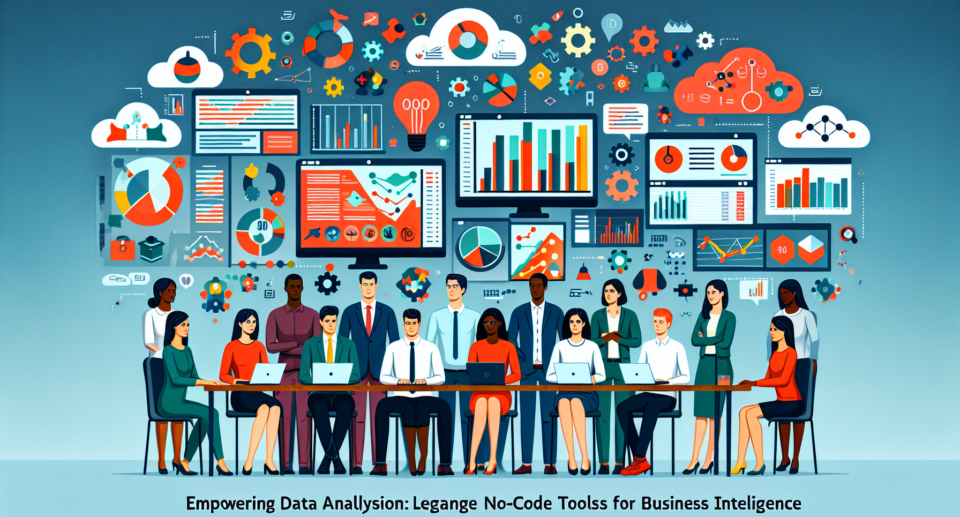Empowering Data Analysis: Leveraging No-Code Tools for Business Intelligence

In today’s data-driven world, businesses thrive on the ability to rapidly analyze and interpret vast amounts of information. Data analysis has become the backbone of strategic decision-making, enabling organizations to glean insights that drive productivity, efficiency, and growth. However, the traditional approach to data analysis often demands significant technical expertise and coding knowledge, posing a barrier to many companies. Enter the era of no-code tools, revolutionizing the way businesses approach data analysis and business intelligence (BI).
The Rise of No-Code Tools
No-code tools have democratized the world of technology by allowing individuals with little to no programming skills to create robust applications and data models. These platforms provide user-friendly interfaces that enable users to drag and drop elements, customize functionalities, and automate processes without writing a single line of code. In the realm of business intelligence, no-code tools empower employees across various departments—marketing, finance, operations, and beyond—to perform complex data analyses seamlessly.
Advantages of No-Code Business Intelligence Solutions
1. **Accessibility and Usability**:
No-code BI tools are designed with non-technical users in mind, making data analysis accessible to everyone in an organization. This inclusivity fosters a culture of data-driven decision-making across all levels of the company.
2. **Cost-Effectiveness**:
Traditional data analysis often requires hiring specialized IT staff or external consultants, leading to high costs. No-code tools reduce or eliminate these expenses, offering affordable solutions that can be quickly adopted and scaled.
3. **Enhanced Collaboration**:
By eliminating the technical barriers, no-code tools encourage collaboration between departments. Teams can share insights and data visualizations easily, fostering a more integrated approach to business intelligence.
4. **Speed and Agility**:
With no-code platforms, users can rapidly prototype, test, and implement data models and dashboards. This agility allows businesses to respond swiftly to changing market conditions and emerging trends.
Key Features of No-Code BI Tools
– **Intuitive Drag-and-Drop Interfaces**:
Users can easily import data, create visualizations, and build dashboards by dragging and dropping elements. This feature minimizes the learning curve and enhances productivity.
– **Data Integration**:
No-code BI platforms often come with built-in connectors for various data sources, such as databases, cloud services, and APIs. This seamless integration ensures that all relevant data is available for analysis.
– **Customizable Templates**:
Pre-built templates allow users to start their data analysis journey quickly. These templates can be tailored to meet specific business needs, ensuring relevant insights are extracted efficiently.
– **Automated Reporting**:
Automated reporting features enable users to schedule and distribute reports at regular intervals, ensuring stakeholders are consistently updated with the latest information.
Popular No-Code BI Tools
Several no-code BI tools have gained popularity due to their ease of use and powerful capabilities. Some notable mentions include:
– **Tableau**: Known for its robust data visualization features, Tableau offers a user-friendly interface suitable for users at all skill levels.
– **Airtable**: Combining the functionality of spreadsheets and databases, Airtable allows users to organize and analyze data effectively.
– **Power BI**: Microsoft’s Power BI provides comprehensive data integration and visualization features, making it a favorite among businesses.
– **Zoho Analytics**: Zoho Analytics offers extensive data analysis and reporting capabilities, with a focus on simplicity and usability.
Conclusion
Incorporating no-code tools into your business intelligence strategy can significantly enhance your organization’s data analysis capabilities. By lowering the technical barriers and fostering a culture of collaboration and agility, no-code BI platforms empower businesses to make smarter, data-driven decisions.
